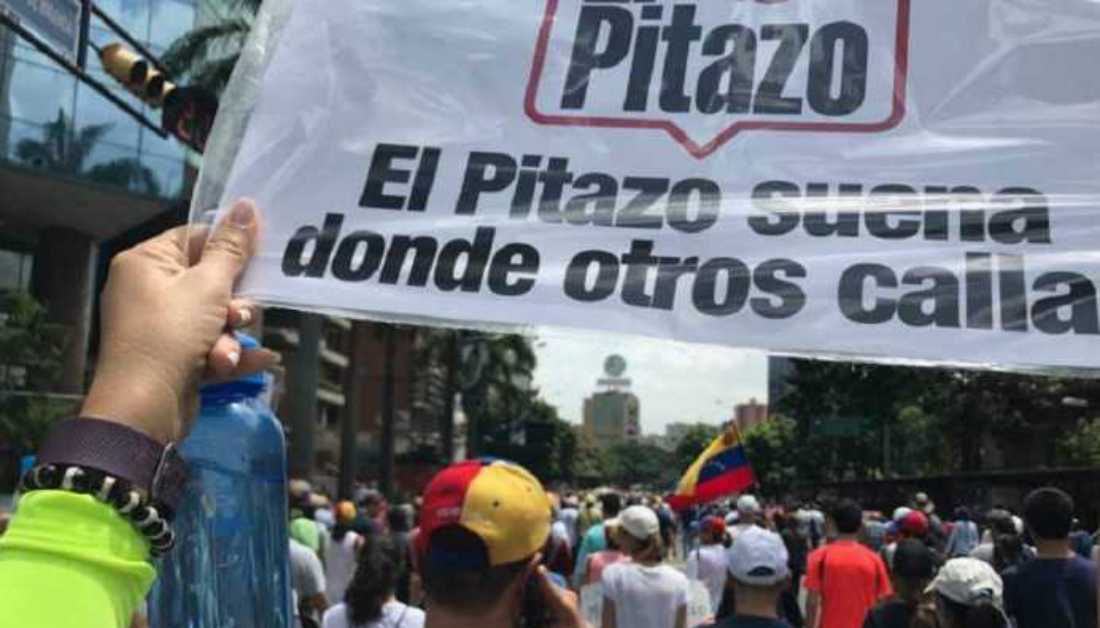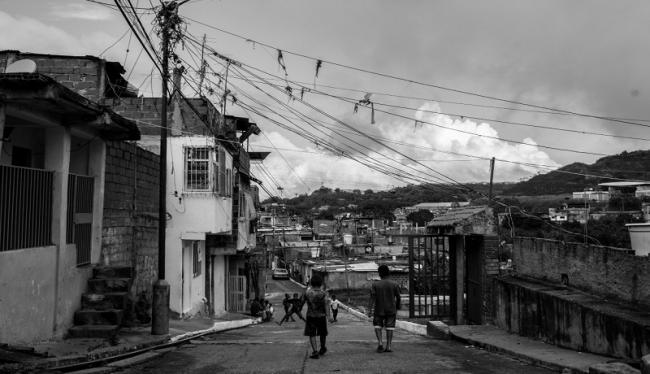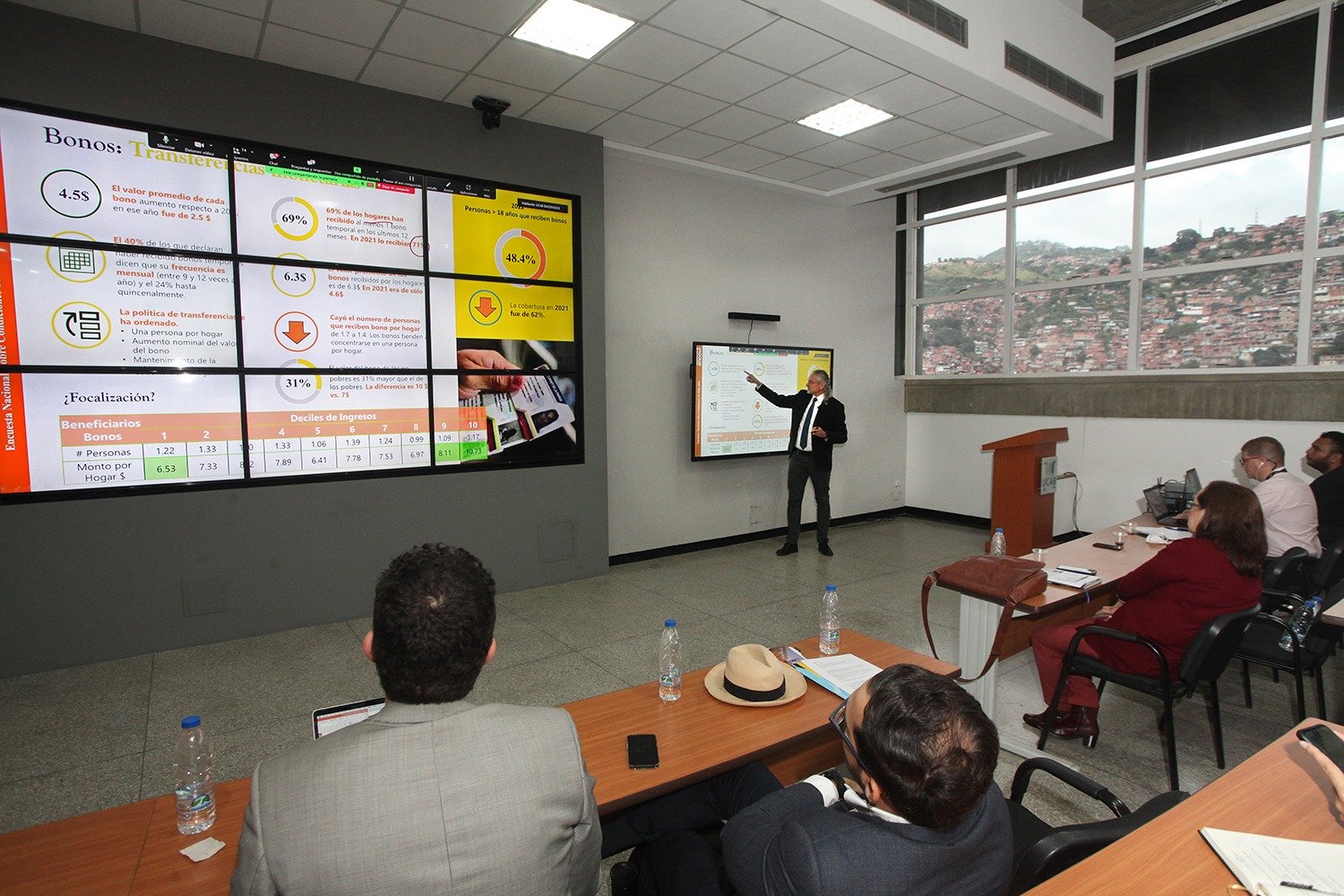The selection of Tomás Guanipa to run for mayor in the Libertador municipality of Caracas on behalf of the opposition party Mesa de la Unidad Democrática (Democratic Unity Roundtable) has brought about both controversy and rejection from actors that are part of the unitary platform itself.
The president of the Democracy and Inclusion Movement, Nicmer Evans, was one of the most critical when pointing out that Guanipa’s selection is an imposition and “reveals that the four biggest opposition parties have decided to violate all rational criterion of unity by seizing control over the electoral platform.”
G4 is the name given to the group of the four opposition parties with the highest number of votes in the 2015 legislative elections, considered by the opposition as the last competitive elections that have been held in the country. The groups is composed of political parties Acción Democrática, Primero Justicia, Voluntad Popular, and Un Nuevo Tiempo.
“The decision of the G4 to impose the selection of Tomás Guanipa without taking into account other leaders like Antonio Ecarri, a member of the Unitary Platform, and Roberto Patiño from their own ranks reveals the hegemonic anti-unity practices of the G4. A primary election was the logical thing to do. The consequences will be tragic if we fail to rally around Antonio Ecarri, by making citizens step over the mediocrity and exclusion of the G4 sect, ” Evans concluded.
Some people have observed that Guanipa spent almost two years in exile, which prevented him from campaigning and connecting with people as Patiño did.
Anti-democratic structures
Political scientist Ana Milagros Parra points out that Guanipa’s case “is not uncommon in the G4.” “There is no democratic mechanism inside the parties to allow the alternation of candidates and giving young leaders the possibility of aiming at a more relevant position,” she affirms.
Parra further adds that “nominating a person for having influence within the party and the interim government is simply an imposition.”
The analyst highlights that the selection of the Zulia-born politician brings over an important question about what will happen to his role as a delegate of the opposition at the Mexico negotiations.
Another obstacle that the opposition faces in this bet for Guanipa is the political interdiction of the national secretary of Primero Justicia. The G4 must get the Chavista government to lift the interdiction of Guanipa before September 22, the date on which the period to register alternate candidates expires.
Political scientist Piero Trepiccione considers that this decision “reveals that the parties have not been able to get rid of quotism“, or the distribution of positions based on the power quotas that politicians hold within their organizations rather than on the popularity they enjoy or the connection with the voters.
“Quotism did a lot of damage to Acción Democrática and Copei in the past and was also the cause of the disconnection of these parties with their bases. In this case, we have seen that the G4, rather than acting with magnanimity in seeking the best possible option, maintains the thesis and ends up making decisions that are unpleasant, unpopular, and that could have consequences such as losing the election in some circuits”, Trepiccione explains.
Trepiccione emphasizes that the main task of the democratic alternative must be to elect leaders who guarantee a repositioning of the opposition and the build-up of political power through the election.
The challenges ahead
For Parra, the main challenge for the opposition is the “atomization of the vote” due to the divisions that exist in the Unitary Platform. The most palpable examples of the difficulties in reaching unitary candidacies are the situation in Miranda, Lara, and Táchira, where Nicolás Maduro’s adversaries are divided despite having the best chance of winning due to the historical electoral behavior of those states.
Recently, the G4 decided to replicate in Lara the same mechanism that was implemented in Miranda, which consists of measuring the popularity of the candidates through surveys, even if the formula proved unuseful to solve the dispute between potential candidates Carlos Ocariz and David Uzcátegui in the state Miranda.
The political scientist also emphasizes that the opposition must define a clear strategy for the regional and municipal elections: “It is not about going to vote or not, it is about what to make of the election. In non-democratic countries, elections are instrumental for the regime, which means that you cannot sell the idea of going to vote and expect a direct change. It is about creating a strategy to define what you are going to make of the election, which is only one point in a grand strategy for pressure, ”she adds.
Trepiccione mentions three challenges: reinvention, a change of narrative, and the build-up of strength.
“They must reconnect with the people to be a real alternative for power again. They must also deactivate the abstentionist narrative because the equation remains the same: the greater the participation, the more possibilities of winning for opposition candidates. The challenge is to mobilize an electorate that has been more than apathetic, skeptical. The opposition must convey to the political factors in power and the geopolitical actors the message that it represents the majority, ” Trepiccione argues.
Translated by José Rafael Medina




